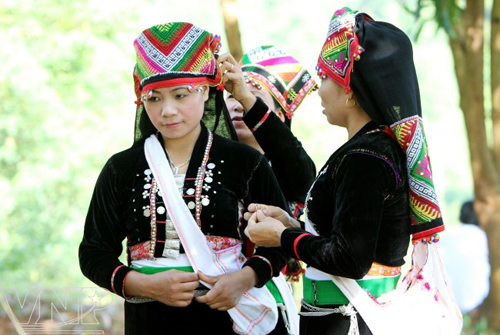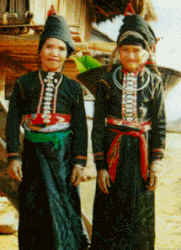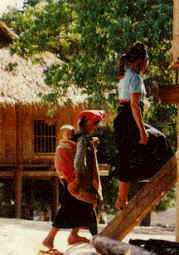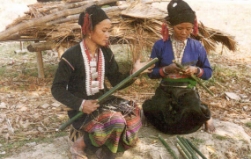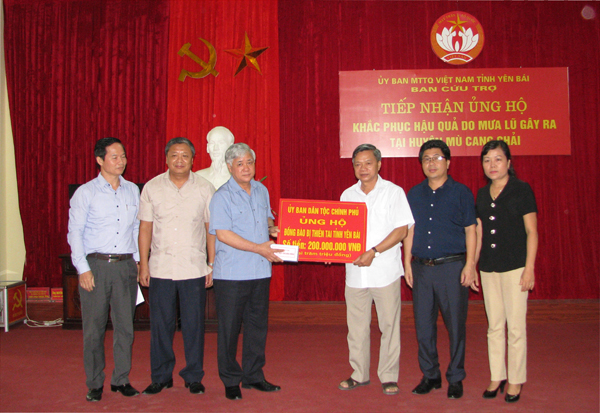The Kho-mu live on slash-and-burn cultivation. They mainly grow maize, sweet potato and cassava. They use rudimentary tools such as knives, axes and sticks. Hunting and gathering are needed to ensure daily survival needs, especially in the intervals when the old rice is finished and the new one is not yet harvested. The Kho Mu rear poultry and cattle to provide food for feasts, rites and ceremonies. Basketry is developed to provide food containers. The Kho-mu do not develop cloth weaving, so have to buy cloth and garments from the Thai.
Up to now, many Kho-mu families still lead a nomadic life. Their villages and hamlets are generally distant from one another and quite small. The houses are temporary and rudimentary with a few of furniture. Kho-mu national identity in dress seems to go on the decline, but women's ornaments are still notable.
The Kho-mu family name often represents an animal, bird, plant, even an object. Each lineage considers such animal or plant its first ancestors and refrains from killing or eating it. Each lineage has ancient tale retracing their origin. The people of the same lineage have blood relations
In a Kho-mu family, the wife is the equal of her husband. The Kho-mu's custom goes that the husband must live with his wife's family for one year, then he can take his wife to his home. When living in the wife's family, the husband must take her family name. Likewise, the child who lives in the mother's house takes the mother's family name, and will change it for the father's lineage name only when its parents live in the father's house. Marriage between the same lineage is forbidden, while a son of paternal aunt can marry a daughter of maternal uncle. The maternal uncle plays an important role in the wedding of his nieces and nephews and is the adviser to them in family matters.
The Kho-mu believe in the existence of genies, in particular genie of the heaven, assisted by genies of the thunder, the earth, the forest, or the spirits of the field, the village, the house and the ancestors, etc. Every year, the Kho Mu people hold rituals worshipping the spirits of the village and the ancestors and praying for bumper harvests and good production.
Though the Kho-mu people's material life is still hard, they possess a rich heritage of long traditional and valuable culture.

